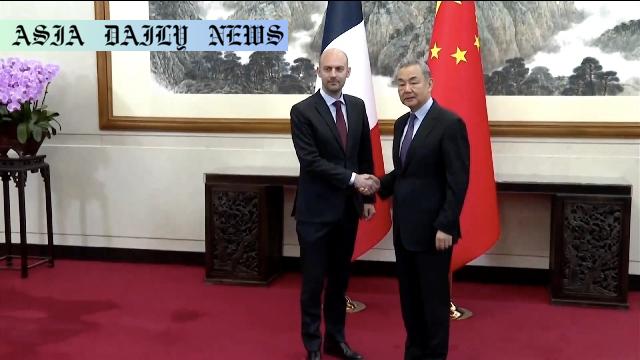Multilateralism – China and France reaffirm global trade cooperation and climate change efforts in a joint declaration.
China and France pledge collaborative efforts against climate change.
Both nations support multilateral trade under the Paris Agreement.
The statement highlights resilience amidst global protectionism.

China and France Unite for Multilateralism and Climate Action
The recent meeting between Chinese Foreign Minister Wang Yi and his French counterpart Jean-Noel Barrot underscores a significant step towards strengthening global partnerships to address pressing global issues. Held in Beijing, this diplomatic encounter reflects the commitment of both nations to the enduring principles of multilateralism and the fight against climate change. Against the backdrop of increasing unilateralism in global politics, the collaboration between China and France sends a strong message about the vitality of cooperative actions in tackling today’s challenges.
The joint statement released after the meeting highlights their shared dedication to the Paris Agreement, a legally binding international treaty aimed at limiting global temperature rise. A decade after the agreement’s adoption, both nations reaffirmed their support for this vital environmental cause. This renewed commitment is especially important amid the growing skepticism towards climate cooperation in certain countries. Together, China and France aim to lead by example, emphasizing that collective action is the most effective response to global climate concerns.
Reaffirming Trade and Climate Cooperation Amid Rising Protectionism
The meeting also presented a united front against protectionist policies, particularly evident in former U.S. President Donald Trump’s trade policies and withdrawal from the Paris Agreement. As key players in the global economy, both China and France are committed to bolstering international trade systems and ensuring they remain resilient in the face of political and economic shifts. By promoting multilateralism, this collaborative effort highlights the importance of an interconnected world where trade, environmental efforts, and diplomacy thrive in tandem.
The reference to “the regression of certain countries from scientific consensus” is a direct reminder of the consequences of neglecting multilateral commitments. While unilateral approaches may momentarily benefit individual nations, the broader global impact underscores the interconnected nature of our economies and environments. China and France’s strengthened measures signify their intent to remain steadfast in their responsibilities.
The Path Ahead: Enhancing Partnerships and Building a Sustainable Future
This partnership is not only a symbolic gesture but also a practical pathway for larger initiatives addressing climate change and global economic challenges. Both nations seek active participation in multilateral institutions and are prepared to take on leadership roles. Their collaboration, fueled by mutual goals and guided by the framework of the Paris Agreement, paves the way for other nations to reassess their commitment to international responsibilities.
As the world confronts unprecedented environmental and economic challenges, the bilateral cooperation of China and France signifies the urgency of unified action. Beyond trade and climate issues, this partnership offers a blueprint for a collaborative global response to crises, fostering stability and sustainable progress for future generations.



Commentary
The Importance of Multilateralism in a Fragmented World
In a world where fragmentation poses a significant threat to global progress, the commitment between China and France to uphold multilateralism comes as a beacon of hope. Their agreement to cooperate on addressing climate change and trade challenges speaks volumes about the enduring significance of collaboration. As countries increasingly adopt protectionist policies, partnerships like this remind us that unity, not division, is the way forward.
The joint statement allocating focus on the Paris Agreement highlights the urgent need to revisit climate-focused goals, especially with the ongoing impact of global warming. Countries stepping back from their commitments only exacerbate the issue, making the example set by China and France even more vital. Through their collaboration, they demonstrate that political will and mutual respect can transcend national interests for the greater good.
The Ripple Effects of Partnership
Beyond the immediate implications of their cooperation, this agreement serves a greater purpose: inspiring other nations to take similar actions. Evidently, the failure of unilateral policies has created a vacuum that multilateral initiatives are poised to fill. By fostering economic stability and environmental responsibility, the China-France bond sends a clear signal—that partnerships in challenging times can yield transformative results.
Ultimately, the actions and resilience demonstrated by these nations are a call to governments and institutions globally. While some retreat into isolationism, others, like China and France, lead with valor, showcasing that cooperation is not just desirable—it is essential for a sustainable future.